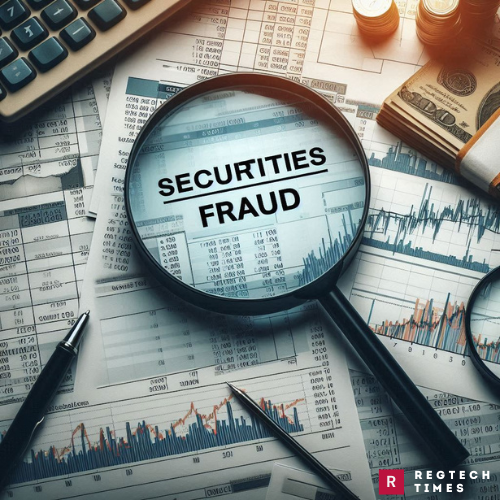In a significant legal development, a federal grand jury in the Central District of California has indicted Andrew Left, a prominent activist short seller and founder of Citron Research, on multiple counts of securities fraud. The indictment alleges that Left orchestrated a sophisticated market manipulation scheme, generating illicit profits of at least $16 million.
The Charges Against Andrew Left
Andrew Left, 54, previously based in Beverly Hills, California, and now residing in Boca Raton, Florida, faces severe legal repercussions. The indictment accuses Left of manipulating stock prices by making misleading or exaggerated public statements through his online platform, Citron Research. Citron Research, which includes a website and a social media account on X (formerly Twitter), was used by Left to publish investment recommendations and commentary on various publicly traded companies.
According to the indictment, Left’s strategy involved creating sensationalized headlines and exaggerated claims to provoke significant market reactions. His commentary often included a “target price,” which was purportedly based on his valuation of the company’s stock. However, Left allegedly used this public information as a cover for his actual trading activities. Behind the scenes, he was accused of establishing long or short positions in these stocks and using short-dated options contracts to capitalize on the ensuing price movements.
Details of the Manipulation Scheme
The indictment outlines how Andrew Left allegedly exploited his platform to manipulate stock prices for personal gain. Before publishing Citron’s commentary, Left reportedly prepared to swiftly close his positions post-publication, reaping profits from the short-term market reactions his commentary generated. He is accused of using limit orders to close positions at prices far removed from the public target prices he recommended.
To enhance the illusion of credibility, Left is alleged to have misrepresented his independence and lack of financial conflicts of interest. The indictment accuses him of concealing financial relationships with hedge funds by fabricating invoices and making false statements to the public about these relationships. Additionally, Left is accused of lying to federal investigators, denying any coordination or compensation exchange with hedge funds.
False Statements and Media Misrepresentation
Andrew Left’s influence extended beyond his online presence, as he frequently appeared on cable news channels like CNBC, Fox Business, and Bloomberg Television. The indictment claims that Left provided inaccurate information about his trading positions during these media appearances. For example, after denouncing a company as a “fraud” on CNBC’s “Fast Money,” Left allegedly falsely claimed to have only covered a small portion of his position when he had, in fact, closed out more than sixty percent of his holdings in that company’s stock earlier the same day.
Legal Consequences and Ongoing Investigation
Andrew Left faces serious charges, including one count of operating a securities fraud scheme, 17 counts of securities fraud, and one count of making false statements to federal investigators. If convicted, he could receive a maximum of 25 years in prison for the securities fraud scheme, 20 years for each count of securities fraud, and five years for the false statements count.
Trial Attorneys Lauren Archer and Matthew Reilly from the Criminal Division’s Fraud Section, along with Assistant U.S. Attorneys Brett Sagel and Alexander Schwab from the Central District of California, are prosecuting the case. The investigation is being led by the FBI Los Angeles Field Office and the U.S. Postal Inspection Service (USPIS), which have been actively involved in uncovering the details of the alleged scheme.
Impact and Implications
The indictment of Andrew Left highlights significant concerns about market manipulation and the integrity of financial markets. As a prominent figure in the world of short selling, Left’s actions could have far-reaching implications for how securities fraud and market manipulation are prosecuted and regulated.
This case also highlights the challenges in distinguishing legitimate market activities from manipulative practices, particularly in the realm of short selling and financial commentary. The outcome of this case may set important precedents for the future of securities regulation and enforcement.


